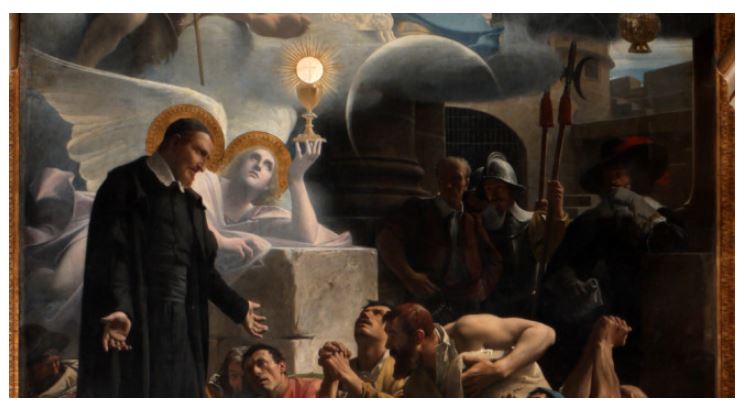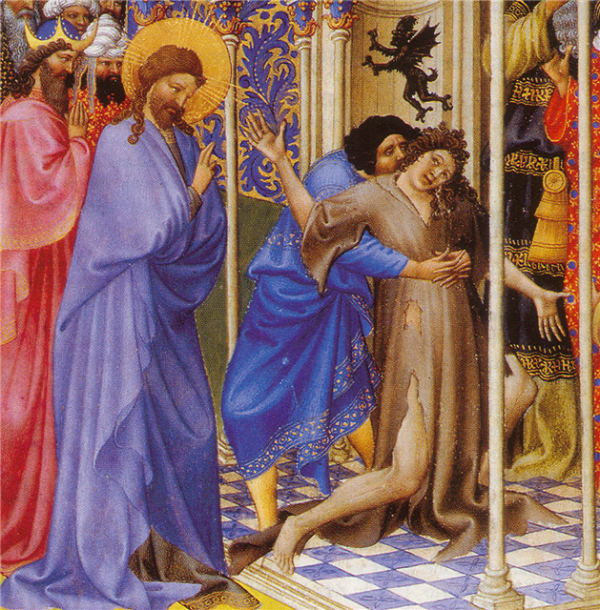St. Vincent De Paul’s extraordinary life began in 1561 in the village of Pouy, France. From his humble beginnings as the child of peasant farmers St. Vincent would one day become an adviser to the Queen of France, and from preaching one mission to peasants in 1613 St. Vincent would found an order of priests who would continue this work all over the world. After spending two years as a slave in Tunisia, he returned to France and became a missionary to prisoners in Paris and Marseilles, and he was instrumental in the ransom of over 1,000 Christian slaves from North Africa. He began hospitals, he founded communities where the poor could work to support themselves, and he set up homes for orphans. As a result of his devotion to the poor, the sick, and the imprisoned he is the patron of charitable organizations and he is called the “Apostle of Charity.” One might assume, then, that charity was the virtue St. Vincent De Paul valued most in his life, but it was not. In a letter to a friend he once wrote, “[Simplicity] is the virtue I love most, the one to which in all my actions I pay most heed.” He often said that simplicity was his “gospel.” What exactly was this holy simplicity that was so important to St. Vincent DePaul, and how can we imitate this virtue in our own lives?
The word simplicity has a few different meanings, and it seems that St. Vincent embraced three of them. First, simplicity means freedom from complexity or division into parts; second, the absence of luxury or ornament; and third, freedom from deceit or guile. Each of these meanings is important if we are to understand why St. Vincent esteemed simplicity so highly, so we will look at each of them in turn.
1. Simplicity as having a single aim or purpose
“You shall love the Lord your God with all your heart, and with all your soul, and with all your mind.” (Matt. 22:37)
St. Vincent wanted his priests and nuns to be simple in the sense that they did everything out of love of God, and not for other reasons. He did not want them to do things to impress their superior or out of human respect. He wanted them to be single-minded in their intentions and in their pursuit of God’s will. Too often, our intentions are not pure, and we act according to our own will, instead of God’s. This hinders us from flying to God in our thoughts, in our prayers, and in our hearts throughout the day. It also prevents God from working in us the way He could if we abandoned ourselves to His will.
2. Simplicity in material possessions
“When Jesus heard this, he said to him, ‘There is still one thing lacking. Sell all that you own and distribute the money to the poor, and you will have treasure in heaven.” (Lk 18:22)
St. Vincent asked his priests not to have any superfluous furniture, pictures or books in their rooms, and to avoid owning any vain or useless things. He knew that possessions bring attachment, and attachments hinder us from living for God in complete freedom. After all, St. Vincent wanted to imitate Christ in everything, and it was He who was born in a stable and had “no place to lay his head.” (Lk 9:58) How can we live this kind simplicity in our lives? Are there unnecessary purchases we could sacrifice, and instead give that money to the poor? Are there items in our homes that we do not use that could be donated to someone who could use them? As Christians, it is important to reflect often upon what we are doing for our less fortunate brothers and sisters–in our neighborhood, in our country, and around the world. If we want to imitate Christ the way St. Vincent did, we must be willing to go without in order to help those who are in need.
3. Simplicity as sincerity
“Here is a true Israelite, in whom there is no guile or deceit.” (Jn 1:47)







